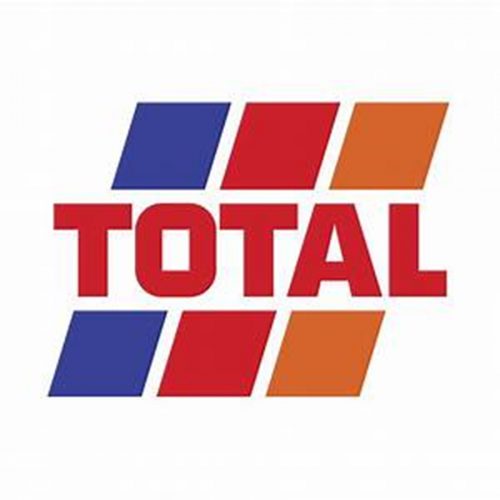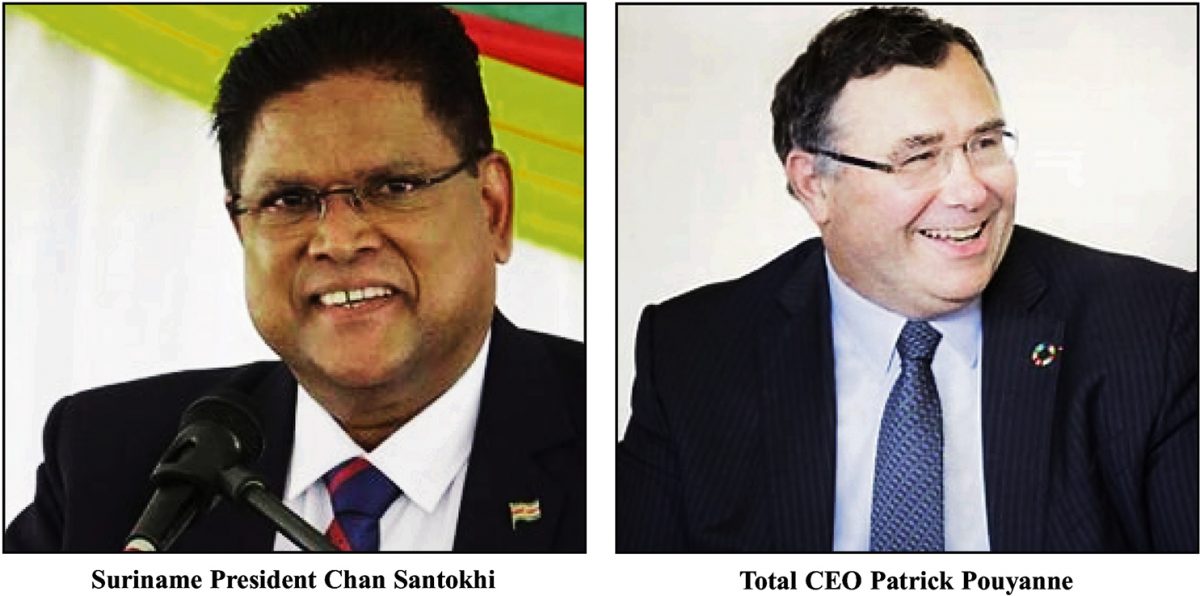Less than a week after the Stabroek Business had published a story alluding to Suriname falling behind Guyana in what had been seen for some time as a race between the two countries for first oil, (Suriname’s ‘delayed’ oil breakthrough delaying bilateral ambitions with neighbouring Guyana – Stabroek Business Friday September 15, 203), the French oil company brought the country the ‘good tidings’ that it is on the verge of commencing what another media report has described as “development studies for a large oil project offshore the country” which is scheduled to commence before year end and which it says is expected to position the country for first production in 2028. The studies are being done, the report said “ahead of a US$9-billion investment into Suriname’s nascent oil industry which is expected to start first production in 2028.”
The glad tidings were reportedly brought to Paramaribo last Wednesday, by Total Energies Chief Executive Officer, Patrick Pouyanné, just over a week ago. Apart from realising what the media report said amounted to “lifting the uncertainty” surrounding the final investment decision (FID) for the country’s offshore Block 58, the announcement would have served to remove some of the gloom associated with the much less-than-stellar state of the country’s economy. The report says that a final investment decision will be made next year.
 This disclosure will doubtless be seen in Paramaribo as the most significant news to be handed the country throughout its protracted wait for a game-changing oil and gas breakthrough. During much of that period Guyana’s President Irfaan Ali and his Surinamese counterpart, Chan Santokhi, had spent time visiting their respective capitals, mulling the bilateral development possibilities that could arise from both countries reaching petrostate status.
This disclosure will doubtless be seen in Paramaribo as the most significant news to be handed the country throughout its protracted wait for a game-changing oil and gas breakthrough. During much of that period Guyana’s President Irfaan Ali and his Surinamese counterpart, Chan Santokhi, had spent time visiting their respective capitals, mulling the bilateral development possibilities that could arise from both countries reaching petrostate status.
The Suriname/Total undertaking had reportedly been delayed from 2022 on account of what one report described as “concerns over a mismatch between seismic data, and drilling results” during which period and contrary to expectations, several dry wells were built. It was these ‘false starts’ that have been primarily responsible for the setting of the timeline for Suriname’s ‘first oil’ from 2025 to 2028. Total’s recent intervention could bring forward that timeline to as early as 2026.
In the course of a brief but heady period in Guyana/Suriname relations which had been driven largely by corresponding expectations of oil wealth in the short term, the ‘to-ing and fro-ing’ of Heads of Government and attendant delegations between the countries had appeared to put behind both countries, the long-standing Corentyne River dispute. Significantly, at the height of what appeared a dramatic turnaround in relations between Georgetown and Suriname, the two countries signed an agreement for the construction of the Corentyne Bridge that would connect them.
TOTAL Boss Patrick Pouyanné is on record as saying that the recently launched Block 58 development studies, will, going forward, be the centerpiece of Suriname’s oil and gas pursuits. He is quoted as saying that the development of the petroleum resources of Suriname… “is in line with Total Energies’ strategy aiming at the development of low-cost, low-emissions oil resources, and leverages on our company’s expertise in deep water projects.”
Whether the seeming Block 58 breakthrough which now seems set to become Suriname’s first commercial offshore project, (the Block has been confirmed to have cumulative resources of nearly 700 million barrels of oil and gas in two main fields – Sapakara South and Krabdagu) will lead to a stepping up of the various planned bilateral undertakings that had been agreed between Presidents Ali and Santokhi will be accelerated now that Suriname’s first oil now appears to be on the horizon, is unclear. What the recent development in Paramaribo signals, however, is that two of South America’s historically poorest countries would appear to be, almost simultaneously, coming into their development own in a big way.








